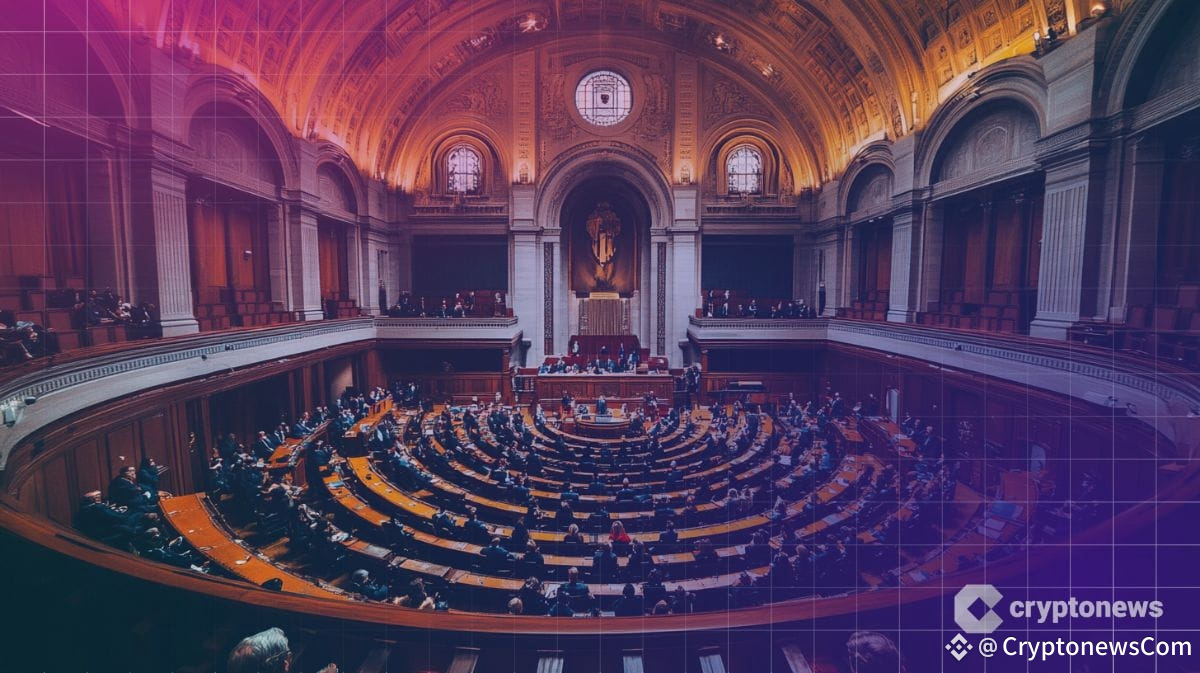
New York Assembly Member Phil Steck has introduced legislation imposing a 0.2% excise tax on all digital asset transactions, including crypto and NFT sales or transfers.
According to the bill filing, the proceeds will be earmarked for expanding substance abuse prevention programs in upstate schools.
State Revenue Generation Targets Growing Digital Asset Sector
Assembly Bill A08966, introduced August 13 and referred to the Ways and Means Committee, would take effect September 1, 2025, marking another state-level attempt to generate revenue from the growing crypto sector.
The bill defines digital assets broadly as any asset “issued, transferred, or both, using distributed ledger or blockchain technology,” encompassing digital currencies, coins, and non-fungible tokens.
The legislation places responsibility for tax payment on “the person or persons making or effectuating the sale or transfer,” potentially creating compliance challenges for exchanges, traders, and DeFi protocols operating in New York.
The proposed tax comes as global jurisdictions pursue diverse approaches to crypto taxation, ranging from total bans in China to innovation-friendly frameworks in Switzerland and Singapore.
The Trump administration reversed Biden-era crypto enforcement policies in 2025, repealing DeFi broker rules and positioning the US as more crypto-friendly, while the EU implemented comprehensive MiCA regulations requiring strict licensing for crypto asset service providers.
Global Tax Race Intensifies as Revenue Potential Becomes Clear
Thailand, for instance, has implemented a five-year personal income tax exemption on crypto capital gains through licensed platforms, effective January 2025 through December 2029.
The Thai government anticipates over 1 billion baht in additional tax revenue through indirect economic activity despite the exemption.
While Thailand wants to exempt taxation, taxing countries are progressing gradually.
Most recently, Indonesia’s crypto tax revenue jumped 181% to $38 million in 2024, driven by transaction volumes reaching $39.67 billion as the country’s crypto user base exceeded 20 million people.
 Indonesia’s crypto tax revenue jumped 181% in 2024 to ~$38M, but collections have fallen in 2025 due to market volatility. #cryptotax #Indonesia https://t.co/s20V54zazb
Indonesia’s crypto tax revenue jumped 181% in 2024 to ~$38M, but collections have fallen in 2025 due to market volatility. #cryptotax #Indonesia https://t.co/s20V54zazb
— Cryptonews.com (@cryptonews) August 1, 2025
However, 2025 collections dropped to $6.97 million through July due to market volatility, highlighting the challenge of relying on crypto taxes for stable revenue.
The Indonesian government raised taxes on foreign exchanges from 0.2% to 1% while keeping domestic platform increases modest at 0.21%, attempting to shift activity toward regulated local platforms.
Mining operations face doubled VAT from 1.1% to 2.2%, with special income tax rates ending in 2026.
Similarly, Japan’s crypto investors face income tax rates up to 55% on profits, prompting the Japan Blockchain Association to survey 1,500 adults about potential reforms.
The survey found 84% of current crypto holders would buy more if the government implemented a flat 20% capital gains tax, while 12% of non-holders said they would start investing under reformed tax rules.
Regional Approaches Vary From Prohibition to Innovation Incentives
Earlier this year, Ukraine also proposed an 18% personal income tax plus 5% military levy on virtual asset gains, with preferential rates of 5-9% for specific categories.
The wartime military levy helps fund defense efforts while the country develops comprehensive crypto taxation frameworks following international examples.
While countries are working towards their taxation framework, China maintains a total ban on all cryptocurrency activities, including trading, mining, and individual ownership, as of June 2025, extending earlier prohibitions to support the state-backed digital yuan.
In fact, China goes as far as enforcing through active asset seizures and criminal penalties for violations, which remains the major country in the region with low crypto appetite.
Singapore, however, offers rigorous licensing through the Monetary Authority with finalized stablecoin regulatory frameworks, attracting blockchain innovation while implementing strict compliance requirements.
Similarly, Hong Kong has positioned itself as an Asian crypto center with licensing for exchanges, custody services, and comprehensive stablecoin oversight.
 Hong Kong SFC tightens crypto custody rules after global security incidents result in $3B losses as hackers move funds 75 times faster than exchange alerts.#HongKong #Cryptohttps://t.co/zffDuuT6aI
Hong Kong SFC tightens crypto custody rules after global security incidents result in $3B losses as hackers move funds 75 times faster than exchange alerts.#HongKong #Cryptohttps://t.co/zffDuuT6aI
— Cryptonews.com (@cryptonews) August 15, 2025
Contrary to the Asian mixed stance, the European Union’s MiCA regulation has unified regulation that requires comprehensive licensing for crypto asset service providers with strict anti-money laundering and consumer protection rules.
The framework harmonizes regulation across member states while maintaining innovation-focused oversight approaches.
The New York proposal joins other state-level initiatives as federal crypto policy evolves under the Trump administration’s pro-innovation stance.
The success of the 0.2% excise tax will likely influence other US states considering similar revenue-generating measures targeting the expanding crypto market.
The post New York Assembly Bill Seeks 0.2% Excise Tax on Crypto and NFT Transactions appeared first on Cryptonews.
